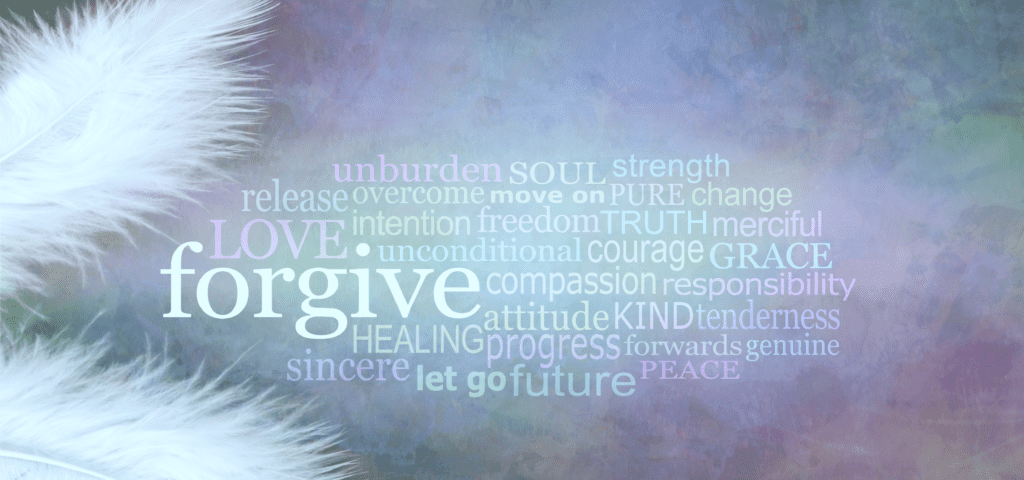Foregiveness is a strange thing. It can sometimes be easier to forgive our enemies than our friends. It can be hardest of all to forgive people we love.
Fred Rogers
When you love someone, it’s hard to imagine you will ever cause them pain. The thought couldn’t be further from your mind! You see them as your person and would never want to hurt them.
But it doesn’t mean you won’t at some point.
From small misunderstandings to more serious offenses, our words and actions can impose deep wounds, maybe even causing irreparable damage to your relationship.
In the aftermath, as you come to terms with the reality that your loved one is no longer a part of your life, you realize the gravity of your mistake. You miss their presence, seeing them smile, and being near them. You would do anything to change what you did. You want to make things right.
So, you commit to doing whatever it takes to get them back and keep them this time. But how?
My aim in this article is to bolster your courage to confront your pain and forgive yourself. Let’s explore the challenges of seeking forgiveness, and how forgiving yourself first could be the answer to finding peace and healing your relationship.
What is Forgiveness?
Forgiveness is a common word we throw around a lot. But what is it exactly?
According to Merriam-Webster, forgiveness is “to stop feeling anger toward (someone who has done something wrong)” or “to stop blaming (someone).”
We all know what it’s like to be hurt by someone. But what happens when we’re the one who did the damage?
When we’ve hurt someone we love, it’s natural to feel deep and challenging emotions. But holding onto feelings of shame and guilt won’t serve you. Taking responsibility and showing remorse will. This is your only real chance to get that person back, keep them in the long run, and restore respect and love to your relationship.

Why It Hurts So Badly
It’s undeniable that there’s a cataclysmic difference in the acuteness of our pain depending on whether a total stranger caused it or someone we trust and love.
How much it hurts comes down to the expectation we have of that person. When we don’t know someone, we have no emotional tie to them and don’t know what they’re capable of doing. We don’t know the first thing about them other than what we see.
So if this person were to do something to offend or hurt us, we’d know that it wasn’t personal since we don’t know them and they don’t know us. It might still sting, but it wouldn’t leave us feeling empty and worthless the way it might when someone we care about betrays us.
As we get to know someone intimately, we create a profile of them. We fill in the unknowns and blanks by being around them and listening to their stories, thoughts, and frustrations.
Before long, we come to think that we have an accurate idea of who they are, so we expect them to act in a way that is consistent with what we have seen them do in the past.
The problem is that humans are not always consistent creatures. Sometimes our behavior and emotions don’t match up with our values and ideals. We make mistakes.
These are our low points, and depending on the damage we cause, forgiving ourselves and others can be extremely difficult to manage.
As the one who faltered, you might ruminate on painful memories, turning the scenes over in your mind repeatedly, and imagining that things would be different if you hadn’t betrayed your partner’s trust.
No matter how much you dwell, you’ll never change the course of the past. It happened, and it’s over. You can, however, do your best to pave the way for forgiveness.
The Path to Forgiveness
Ask and you shall receive? Unfortunately, it doesn’t always work like that when it comes to forgiveness.
The decision about whether or not they let you back into their life is no longer with you. It’s now on them to decide if they can find it in their heart to give you a second chance. They must allow themselves to be vulnerable around you again, which can be a slow, confusing, and painful process.
Since the decision of how they proceed is theirs alone, it doesn’t make sense to focus your time and energy on this. Instead, it would be best to concentrate on what is in your direct control, which is healing yourself.
This is where self-forgiveness enters the picture.

Self-Forgiveness: The First Step to Healing Relationships
No amount of regret changes the past. No amount of anxiety changes the future. Any amount of gratitude changes the present.
Ann Voskamp
This quote reminds me that when times are tough, there’s no point in punishing myself. What’s essential is taking inventory of the goodness I have in my life and remembering that just because I may have messed up, I have not lost my value as a person. If I want to heal, the only way it will happen is in the present.
You are not meant to be perfect, but you can do better moving forward. To overcome any challenge in life (including intense feelings of pain and loss) we must first confront and accept them. We can bring clarity into our hearts and examine ourselves in a new light by asking ourselves important questions that lead to self-forgiveness.

Meditation and Journal Prompts for Self-Forgiveness
The following questions are powerful prompts to help you navigate the journey of better understanding the situation and forgiving yourself.
When going through each question, resist the temptation to obsess. Instead, trust your first instinct on the answers you give yourself and move on.
You can merely think about these questions, but writing them out is most effective for me. I’ll leave that choice to you.
- Have I apologized directly to the person I hurt?
- Why did I do what I did?
- Was it a planned act or a spur-of-the-moment reaction?
- On the days leading up to it, how was I feeling? (This can help us better understand ourselves and identify triggers for the future, which can help us change)
- What was happening that week?
- If I was experiencing emotional lows, did I come to them for support?
- Was I aware that doing what I did was wrong and would likely lead to the outcome it did?
- If I were in the same situation again, would I do things the same way? (Be honest with yourself here)
- Do I feel their pain, and can I understand why what I did hurt them?
- If they gave me a second chance, could I trust myself not to make the same mistake again?

Taking the New Step: Craft a Thoughtful Apology
After you’ve done the inner work and forgiven yourself, you are now ready to take the next step to apologize and ask forgiveness from the person you hurt.
But, there’s much more to an apology than a simple ‘I’m sorry. Please forgive me.’
An honest apology should come from the heart, there is some science to making a great apology. According to research, an effective apology should cover six key areas to communicate your understanding, remorse, compassion, and plan to change:
Anatomy of an Effective Apology
- Express your regret.
There’s no doubt you would take back what you did if you could. A simple expression of regret about how you acted helps lower defenses and makes it clear that you are taking ownership of what happened. - Explain where things went wrong.
Many of our mistakes are based on a misunderstanding or a specific situation. Tap into those questions from above to explain what you think went wrong. Remember to put the focus on yourself with ‘I Statements’ like ‘I didn’t realize….’ or ‘I assumed…’ or ‘I mistakenly …’ - Take ownership.
After explaining what happened, a simple statement like ‘I messed up,’ or ‘I was wrong about…’ can be incredibly healing for both you and the person you hurt. Even in situations where both parties hurt one another, taking ownership of the part you played can move mountains when it comes to forgiveness. - Share how you will prevent a similar situation from happening.
When we’re hurt, we lose trust. Tell your loved one how you will make sure a similar thing doesn’t happen again, or how you will approach an issue differently next time. Be as clear and thorough as possible. - Offer a way to mend the situation.
Find something you can do to restore the balance and ease the pain. It doesn’t have to be a grandiose gesture, but something that shows that you’ve thought about what might make them feel better. - Ask for forgiveness.
Only after you’ve given a thoughtful apology are you ready to ask for forgiveness. Allow them space to think or speak their mind if needed.
Finding Strength in Forgiveness
Forgiveness is an act of emotional acrobatics, requiring more dexterity and power than any force our mere bodies can ever muster. It takes courage to let someone back into your heart, no matter how remorseful they are.
If your loved one does let you back into their life again, don’t squander it. This is your second chance to grow and love better, day by day. If not, accept that forgiveness is one’s own to give – they do not have to forgive you, but you can always forgive yourself.
Having mercy on ourselves isn’t easy. If we can learn to forgive our own mistakes, however, we can find it in our hearts to accept others as they are, flaws and all.
Forgiveness is a funny thing. It warms the heart and cools the sting.
William Arthur Ward









Barbara Thomas
January 15, 2022What a Beautiful Article Luanna! ❤️ I especially loved
No matter how much you dwell, you’ll never change the course of the past. It happened, and it’s over. You can, however, do your best to pave the way for forgiveness.
HAD
January 25, 2022“Forgiveness is the fragrance the violet sheds on the heal that has crushed it.” Mark Twain